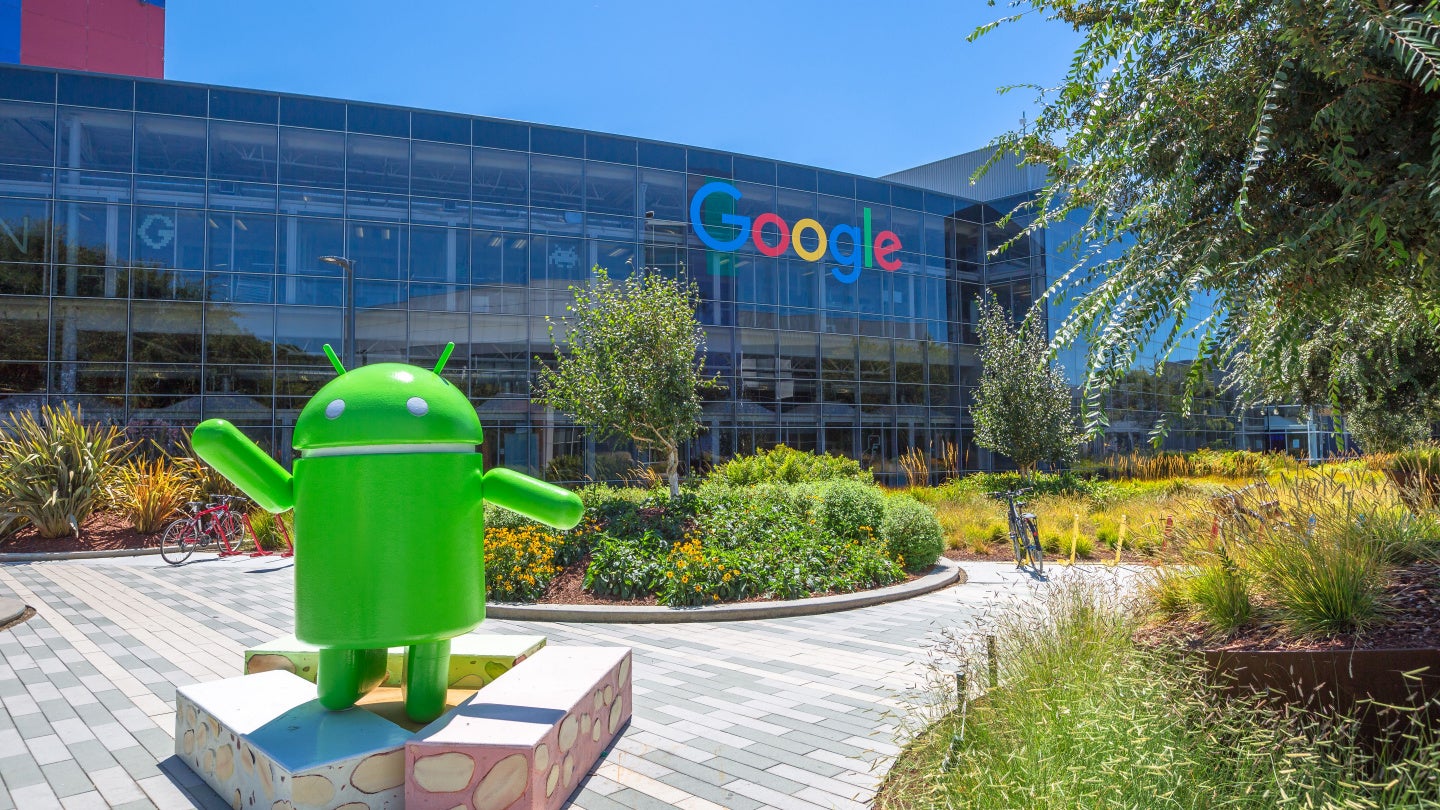
During its ongoing antitrust trial in the US, Google has come under further scrutiny as two confidential internal presentations were presented as evidence in court.
The trial, which began 12 September, is investigating whether Google’s parent company Alphabet unlawfully monopolised its dominance in the search engine market by paying mobile phone manufacturers to use Google as default search engine in phones.

Access deeper industry intelligence
Experience unmatched clarity with a single platform that combines unique data, AI, and human expertise.
An internal presentation, entitled ‘Go big in Europe‘, was originally circulated within Google in July 2019. The presentation lays out Google’s plans to cover at least 83% of Europe’s search queries despite changes in Android phones that make it easier for users to switch default search engines.
Specifically, this presentation laid out plans by Google to create updated football highlights in France and Germany, before expanding this plan out to other markets such as the UK, Spain and Italy.
The presentation also stated that Google would begin to recommend local content to France and German search users, as well as shifting its content acquisition strategy to showcase free news articles.
A later presentation made in 2020 on this same European plan stated that Google intended to invest “above and beyond business as usual” to consolidate the company’s dominant position.

US Tariffs are shifting - will you react or anticipate?
Don’t let policy changes catch you off guard. Stay proactive with real-time data and expert analysis.
By GlobalDataThe court exhibits also confirmed that, from 1 March 2020, all new android mobile phones sold in Europe offered users a search engine choice screen rather than already using Google as a default engine.
With this in mind, Google stated in the presentation that it would continue to focus on promoting local content and its unique features to remain competitive. This included a health and symptoms explore page, a TV episodes recap feature, and an enhanced finance landing page.
Ben Gomes, who was the head of search for Google during 2019 and 2020, testified in court, reported Bloomberg.
Speaking on the potential threat to Google’s dominance that was posed by Android’s new search engine choice screen, Gomes stated that Google was “unsure” how it would be affected. “[These presentations] were trying to figure out what would happen,” he stated.
When asked about Google’s expenditure in Europe at the time, Gomes stated that Google was making European investments “all the time”. Gomes refused to confirm that Google’s further investment into Europe was a direct response to the possible threat posed by Android’s search choice screen.
Instead, he stated that Google wanted to launch new “visible” features that could be used in marketing for the company.
Research company GlobalData’s 2023 thematic intelligence report into tech regulation, identifies antitrust as one of the major hurdles for Big Tech.
“Existing antitrust laws have struggled to adapt to the challenges of the digital economy, where tech giants thrive thanks to their extensive, established customer networks and low-cost capital,” according to the report, “In single-sided markets, the consumer feels the burden of monopoly through higher prices, but this is not easy to establish in multi-sided markets.”
Alongside this, existing antitrust laws are only effective once the company’s action has taken place.
Additionally, notes the GlobalData report, Big Tech companies often do not face much incentive to alter their practices even after being hit with huge fines. This is not the first time Google has faced a fine over its practices breaching competition.
Between 2017 and 2022, Google was fined over $13.9bn over its advertising and Android operating systems by the EU. This only amounted to around 5% of its total revenue in 2022 ($282.2bn).
“Most investigations into Big Tech have happened in Europe and the US,” states the GlobalData report, “but all these attempts at reining in tech monopolies have, so far, had limited impact.”







